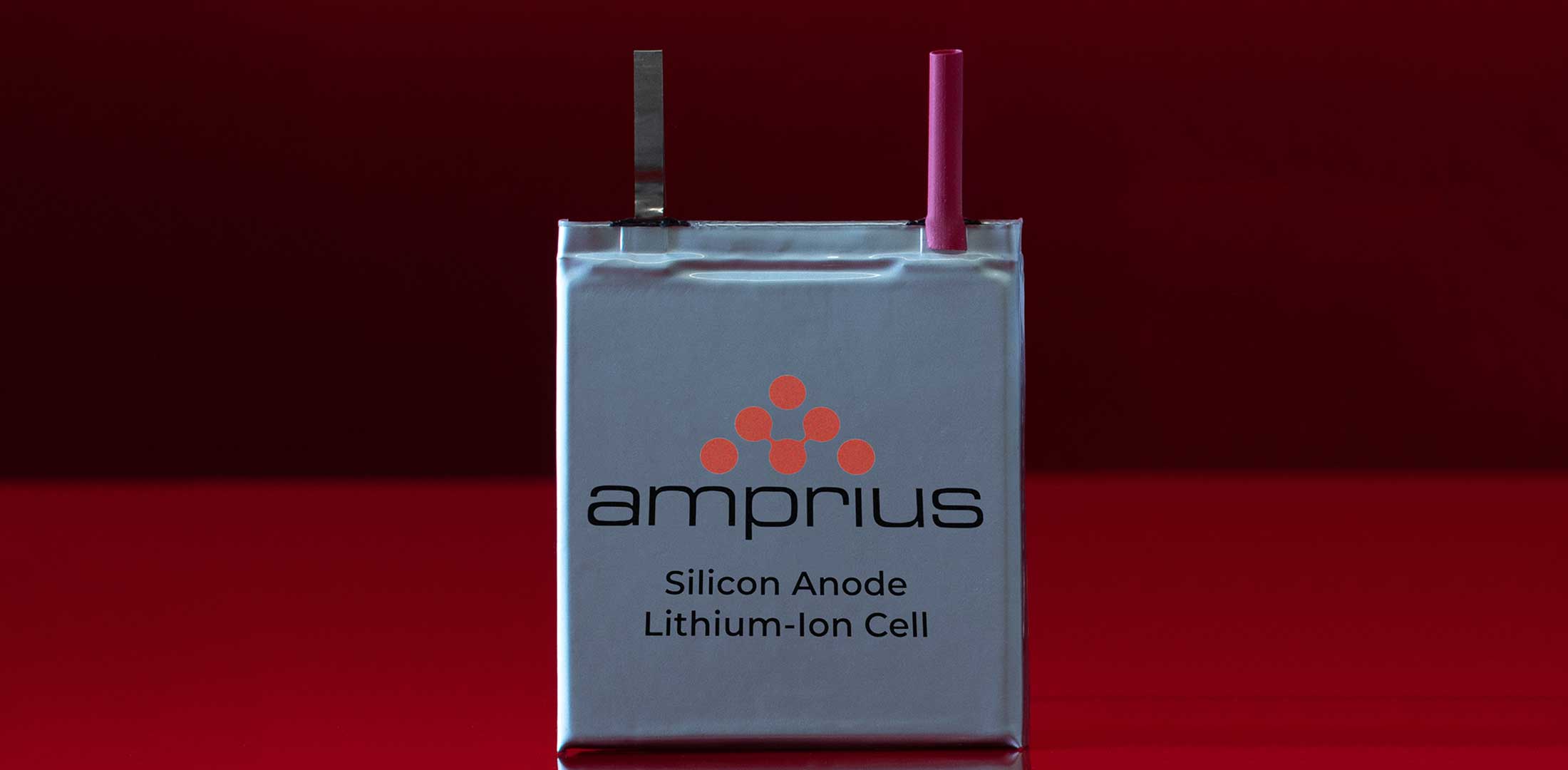Amprius says it has signed deals with three electric aircraft developers for the purchase of its next-generation lithium-ion battery cells, which pack an ultra-high energy density of 450 Wh/kg. The California-based battery developer did not disclose the identity of its customers or the volume of the new orders, only that it will be delivering custom battery cells to three “premier electric aviation manufacturers.”
The 450 Wh/kg battery platform is designed to support products with higher power needs, including electric airplanes and new eVTOL aircraft, which use significantly more power to take off and land than their conventional fixed-wing counterparts. Featuring the company’s proprietary silicon nanowire anode technology, the 450 Wh/kg battery system packs a higher energy density than any commercially available lithium-ion batteries, according to Amprius.
“Our new family of customizable ultra-high-energy density cells offers the ability to significantly reduce weight and increase range,” said Amprius CEO Kang Sun. “Amprius is proud to support the advancement of electric mobility by delivering energy density performance that is unmatched by conventional cells available on the market today.”
Amprius developed the 450 Wh/kg battery system for high-altitude pseudo satellites (HAPS), or drones that fly in the stratosphere on long-duration missions requiring high power and endurance. It delivered the first 450-Wh/kg cells to a HAPS developer in early 2022. Airbus has used the batteries to power its Zephyr solar-powered drone, which flew on a 64-day-long mission last summer. Amprius has also been working with British defense contractor BAE Systems to integrate its batteries into electric aircraft and other unspecified defense technologies.
“Our flight missions require extremely high energy batteries to achieve our performance requirements,” said Dave Corfield, CEO of Prismatic, a BAE subsidiary that is using the Amrpius system in its Persistent High Altitude Solar Aircraft (PHASA-35), a fixed-wing drone featuring solar panels that recharge the batteries during flight. With a wingspan of 35 meters (115 feet), the PHASA-35 weighs a mere 150 kilograms (330 pounds). “Partnering with Amprius, we were able to integrate their ultra-high-energy density batteries to achieve our mass targets which are critical to PHASA-35 performance,” Corfield said.
Since it introduced the 450 Wh/kg platform last year, Amprius has developed another battery cell system with an energy density of 400 Wh/kg and a significantly higher discharge rate of 10C, which allows for ultra-fast charging. Those new battery cells, which are expected to hit the market in 2024, can charge from zero to 80 percent in under six minutes. Last month Amprius announced that it had secured its first purchase order from an as-yet-unnamed eVTOL manufacturer that intends to integrate the battery system into a technology demonstrator sometime in 2024.
